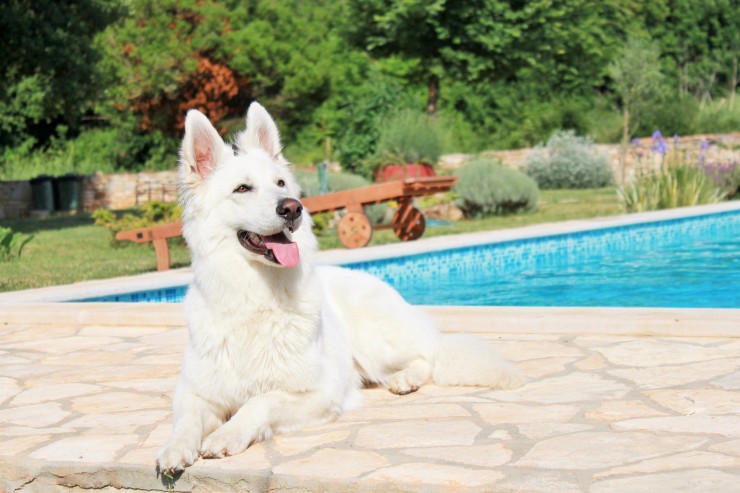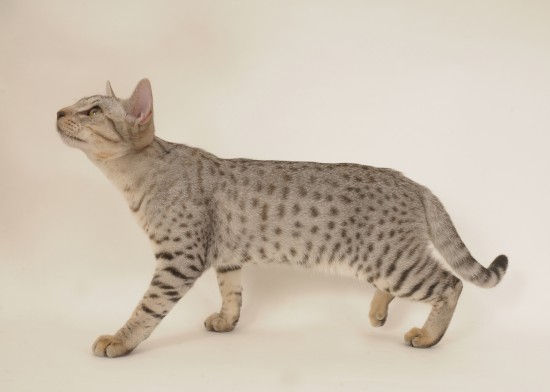
When your normally well-behaved performance horse starts acting strangely, what do you do? Do you immediately think he is developing an attitude or do you look for other causes? If your horse demonstrates any or all of the behaviors below you may want to think twice before assuming he has an attitude problem. Your horse may be displaying equine symptoms of ulcers.
- Refusing jumps
- Acting up in the alley way
- Kicking in the trailer
- Pinning his ears when you put your leg on
- Biting or kicking when his girth is tightened
While these may seem like a group of unrelated symptoms, they're not. They are common equine symptoms of ulcers. Veterinarians and other researchers have recently recognized gastric and colonic ulcers as serious health threats, especially among performance horses or horses in training. The reasons ulcers are so common among these horses include:
* Infrequent, high carbohydrate meals, and inadequate access to hay or pasture
* Heavy training schedules
* High stress environments
* Excessive use of drugs, especially non-steroidal anti-inflammatory drugs
To treat the equine symptoms of ulcers I like to feed pelleted senior horse feed because it is easier to digest than grains. In addition, I find that supplementing horses with one or a combination of these three product lines is very helpful: Simplexity Health, Stomach Soother, and SUCCEED.
** Simplexity Health Products **
Simplexity Health offers extremely high-potency acidophilus, bifidus, enzymes, and blue green algae. When fed as a supplement to the pelleted senior feed, these products are very healing to the digestive system and can be very helpful to those that are showing equine symptoms of ulcers but need to remain in training. The probiotics acidophilus and bifidus help heal any ulceration in the stomach while the enzymes help the horse easily digest his food, preventing further damage. The blue-green algae supports the whole healing process as well as providing the horse an easy source of energy in the form of glycogen from the blue-green algae cell wall.
** Stomach Soother **
This commercial product is designed for the treatment of stomach ulcers and digestive distress in horses. It is made from natural papaya, a tropical fruit, which is native to Central America and Mexico. Papaya's active ingredient is papain, which resembles the digestive enzyme pepsin. Papain stimulates the appetite, soothes membranes of the esophagus and stomach, and quiets inflammatory bowel disorders.
Papaya also contains nutritional compounds such as Vitamin A, Vitamin C, calcium, iron, niacin, potassium, riboflavin, and thiamin. Two ounces twice a day is a great ulcer preventative and can be very soothing for those showing equine symptoms of ulcers. This product is fine for long-term use but it must be refrigerated once the bottle is opened. The company is working on a daily dosing system to overcome this challenge for those who do not have refrigerators near the barn.
** SUCCEED **
This natural product contains oat oil, which is rich in polar lipids, and oat flour, which is high in beta-glucan soluble fiber, yeast extract, and the amino acids L-Threonine and L-Glutamine. Polar lipids are water-soluble fats that help transport nutrients into the bloodstream and support a healthy gut lining. Soluble oat fiber evens out the rate of digestion to improve digestion. Yeast extract supports normal levels of digestive microbes in the large intestine. The amino acids L-Glutamine and L-Threonine support a healthy mucous lining throughout the digestive tract. SUCCEED comes in a paste form for daily dosing of horses that are off feed, definitely one of the equine symptoms of ulcers, and a granule form that can be added to the feed once or twice a day. I find this product to be most helpful for horses with ulcers in the large intestine. Many people find a combination of SUCCEED and Stomach Soother works best.
For more information on managing horses with ulcers or for one-stop shopping for holistic horsekeeping products such as those mentioned in this article, be sure to click the resource box below.
 Eight Interesting And Informative Facts About The Labradoodle
Eight Interesting
Eight Interesting And Informative Facts About The Labradoodle
Eight Interesting
 Feline Herpes Virus (fhv)
Feline Herpes Vir
Feline Herpes Virus (fhv)
Feline Herpes Vir
 Tips And Advice For People Who Take Their Dogs On Holiday
Tips And Advice F
Tips And Advice For People Who Take Their Dogs On Holiday
Tips And Advice F
 Five Of The Easiest Dog Breeds To Train
Five Of The Easie
Five Of The Easiest Dog Breeds To Train
Five Of The Easie
 Is The Ocicat The Right Cat For You?
Is The Ocicat The
Is The Ocicat The Right Cat For You?
Is The Ocicat The
Copyright © 2005-2016 Pet Information All Rights Reserved
Contact us: www162date@outlook.com